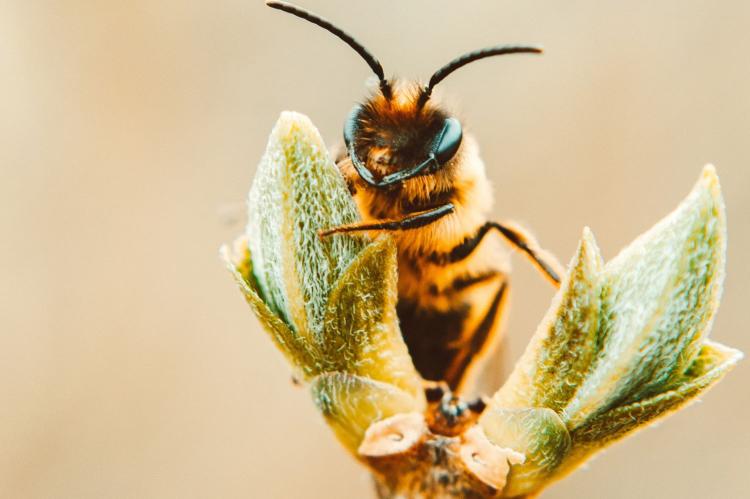Increase in Hemp Farms Lending a Helping Hand to Bees in the USA
The sudden and sharp rise in hemp farms ‘cropping’ up in the USA appears to be a welcome sight to the bees. Bee numbers have been steadily declining across the world in recent years, leading researchers to worry about the future of the insects.
A new study, published in the Environmental Entomology, found that thousands of bees in the USA are now using hemp crops as a critical nutritional resource. Bees have experienced dramatic habitat loss over recent decades as the human population continues to grow. But researchers believe that the newly planted hemp crops could become a vital aspect of the insects’ future.
The US hemp industry has been booming over the last year. This is down to the passing of the US Farm Bill which federally legalised the low THC Cannabis plant. In fact, the area of land now dedicated to the crops (acres) has more than quadrupled since the beginning of 2018.
Researchers from Cornell University observed and sampled bees in 11 hemp farms in New York State. They observed hundreds of bees collecting pollen from male hemp plants. Under closer inspection, they discovered that the crops were supporting 16 different bee species.
In addition, it was found that the insects prefer taller plants, which attracted 17 times the number of shorter ones. Taller plants also support more species of bees.
The Cornell researchers wrote in their report:
“Hemp … offers an abundance of pollen resources to bees during a period of floral resource scarcity in agricultural landscapes.”
Another study, carried out in 1983, also observed a connection between bees and Cannabis plants. Researchers found that bees were collecting pollen from the hemp crops at the University of Mississippi. However, this more recent study is the first to identify the crop as a possible refuge for the vulnerable insects.
The researchers are now urging farmers to consider the wellbeing of bees when implementing pest control measures. Specifically, it is hoped that farmers will avoid pesticides and fertilisers that could potentially harm the bee visitors.
They wrote in their study conclusion:
“Growers, extension agents and policy makers should consider risks to bees as pest management practices are developed for this crop.”
Some may wonder if the cannabinoids found in the hemp plants – predominantly CBD and small amounts of THC – could have an impact on the bees. Apparently this probably isn’t the case. Bees don’t possess cannabinoid receptors to interact with cannabinoids, so it is unlikely that the compounds would have any effect on the bees’ development.
- Log in to post comments

